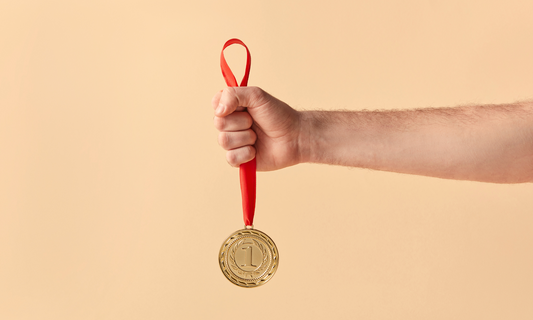Why drink water when you have body aches?

Muscle soreness , those sometimes painful sensations from our workouts, persist as witnesses of intense effort or physical activity beyond our usual limits. At one time or another, every active person has probably felt that muscle stiffness that sets in after an intensive workout or unusual activity. So let's dive together into the heart of the various aspects of muscle soreness to understand the essential importance of hydration .
Understanding Muscle Soreness
Origin of muscle aches
Muscle soreness is not simply a negative consequence of physical activity, but rather the result of micro-traumas in the muscles induced by intense exertion or unusual muscle stress . These micro-tears , although tiny, trigger a natural inflammatory response in the body aimed at repairing and strengthening muscle fibers. Thus, muscle soreness is not necessarily a negative sign, but rather a reflection of intense muscle work and an ongoing strengthening process. Understanding this mechanics is essential for adopting effective muscle soreness management strategies.
Recovery process
Rest plays a fundamental role in the recovery process. In response to microtrauma , the body triggers an inflammatory response aimed at repairing damaged muscle fibers. During this phase, the body releases growth hormones such as somatotropin, stimulating muscle protein synthesis. This protein synthesis is essential for muscle repair and growth, ultimately leading to the regeneration of traumatized muscle cells and hypertrophy, further strengthening the muscle structure. Thus, the recovery phase not only prevents muscle exhaustion, but also promotes improved performance and reduces the risk of overuse injuries.
The impact of hydration on muscle soreness
Hydration and muscle recovery

Hydration , often underestimated in the muscle recovery process, turns out to be a crucial element in the management of muscle soreness. As the main constituent of our muscle cells, it plays a fundamental role in the transport of nutrients and the elimination of metabolic waste. When we are well hydrated, our muscles function optimally, thus promoting faster recovery after intense exercise . Understanding this direct connection between hydration and muscle performance paves the way for more targeted strategies to alleviate muscle soreness.
Oral rehydration solutions and electrolyte balance
Hydratis is an oral rehydration solution that stands out for its electrolyte balance. Going beyond simple hydration, our solution features a perfect balance of essential electrolytes such as sodium , potassium , and magnesium . These compounds play a crucial role in maintaining body fluid balance , while they are also essential for nerve impulse transmission and muscle contraction. By restoring electrolyte and fluid levels lost during physical exertion, Hydratis acts as an effective barrier against dehydration. This contribution goes beyond simply restoring fluid balance, also promoting faster recovery. The specific nutrients present in our solution act synergistically, reducing inflammation and actively supporting the muscle repair process.
Prevention of muscle soreness after exercise
Preventing the onset of muscle soreness after exercise requires a proactive approach, emphasizing practices integrated into the training routine. By adopting preventative habits, it becomes possible to mitigate the impact of muscle soreness and promote optimal recovery .
Warm-up, stretching and cool-down

Incorporating practices such as warming up before exercise, regular stretching , and adequate cool-down are essential components of this approach. Warming up prepares muscles for exercise, reducing the risk of microtrauma. Stretching, especially after exercise, promotes muscle flexibility and helps prevent stiffness that can lead to muscle soreness. Finally, allowing the body adequate time to recover between workouts is essential to avoid muscle burnout.
Know your limits and progress gradually
It's also important to know your physical limits and build up gradually . Overtraining, especially when combined with insufficient hydration, can lead to excessive and prolonged muscle soreness. A balanced approach, combining regular training , adequate rest , and proper hydration , is the key to effectively preventing muscle soreness.
Relieve aches and pains
Application of heat or cold
To relieve muscle aches, alternating between heat and cold can be particularly effective. Cold compresses reduce inflammation and numb the pain, while applying heat promotes blood circulation, speeding up the healing process.
Gentle stretching
Gentle stretching remains a widely accepted method for alleviating muscle soreness. By improving muscle flexibility and promoting blood circulation, these stretches help relieve muscle tension, providing significant relief.
Targeted massage techniques
Targeted massage techniques are an effective way to relax tight muscles and promote recovery. By applying precise pressure to painful areas, massage promotes muscle relaxation and can reduce the intensity of muscle soreness.
Active rest
Active rest, involving light activity such as walking or swimming, is an approach that stimulates blood circulation without further overloading the muscles. It promotes gentle recovery while maintaining physical activity, which can be beneficial for relieving muscle soreness.
Hydration and oral rehydration solutions

Hydration plays a crucial role in muscle soreness relief. Drinking enough water helps maintain the body's fluid balance and promotes the elimination of toxins. Hydratis Oral Rehydration Solution, rich in electrolytes, can be incorporated to optimize muscle recovery .
Muscle soreness isn't just an inevitable part of physical activity, but a sign of exertion and muscle growth. Understanding the underlying mechanisms and adopting appropriate strategies are essential to optimize muscle soreness management. Hydratis , in particular, positions hydration as a valuable ally in this quest for relief and prevention. By providing the body with the necessary water and electrolytes, our tablets go beyond traditional hydration, promoting faster muscle recovery and reducing the intensity of muscle soreness. Therefore, consciously integrating our rehydration solution into your workout routine is a strategic approach to optimize muscle well-being and maximize the benefits of physical exercise.
Bibliography
-
Jung, AP, Bishop, PA, Al-Nawwas, A., & Dale, RB Influence of Hydration and Electrolyte Supplementation on Incidence and Time to Onset of ExerciseAssociated Muscle Cramps. Pubmed. Retrieved from: https://www.ncbi.nlm.nih.gov/pmc/articles/PMC1150229/
-
"Aches and Pains: Definition, Symptoms, Treatment." Sciences et Avenir. https://www.sciencesetavenir.fr/sante/os-et-muscles/courbatures-definition-symptomes-traitement_30371
-
"Cramps and Aches: Causes and Treatments." Sciences et Avenir. https://www.sciencesetavenir.fr/sante-maladie/crampes-et-courbatures-causes-et-traitements_104561
-
Miller, K., & Mackey, A.L. (2007). Hydration and electrolyte supplementation in endurance and team sports. Science & Sports, 22(5), 247-252. https://www.sciencedirect.com/science/article/abs/pii/S0762915X07000800
-
"Muscle Pain, Cramps, Aches and Pains." Vidal. https://www.vidal.fr/maladies/appareil-locomoteur/douleurs-musculaires-crampes-courbatures.html
-
"Relieve Aches and Pains." Everything for My Health. https://toutpourmasante.fr/soulager-les-courbatures/











